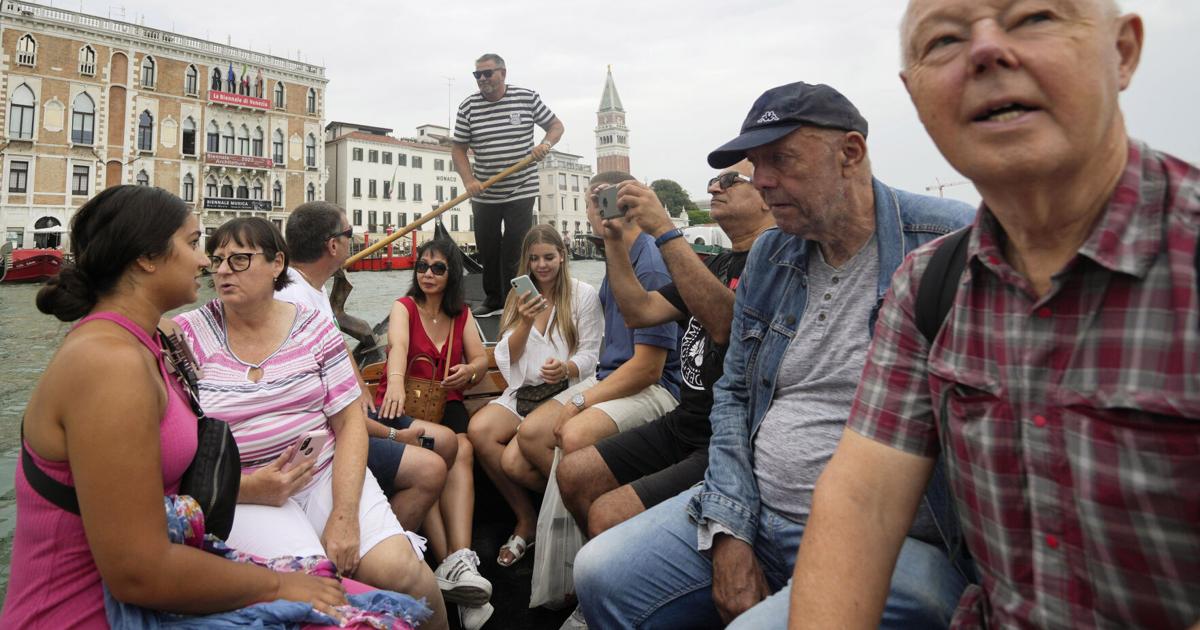Copyright Baton Rouge Advocate

Voters in many of the world’s most attractive cities are in a state of rebellion. From Kyoto to Chiang Mai, Venice to Barcelona, Paris to Amsterdam, Charleston to Lake Tahoe, residents say their way of life is being destroyed by tourists. They complain that hordes of low-end tourists are driving out neighborhood businesses, only for them to be replaced with T-shirt shops. Short-term rentals drive up property taxes and force long-term residents to leave town. Vibrant downtowns give way to rows of vast generic hotels. And because economies based on tourism need more bedmakers and bartenders than scientists or champions of new technologies, the most talented children raised in tourism-oriented cities end up seeking their fortunes elsewhere. Such a voter rebellion is overdue in New Orleans. Once lively streets are silent because property owners reside in New York or Los Angeles and rarely visit. In the French Quarter, 40% of housing units today lack permanent residents, and both the Marigny and Bywater are fast-moving in the same direction. Our schools, like those of Pakistan, send their most promising graduates to colleges and careers elsewhere. The CBD, thriving only a few decades ago, is now a grim mass of hotels. It is no secret that New Orleans’ tourist-based policies and its failure to advance more balanced development unintentionally subsidized the booming growth of surrounding Jefferson, St. Bernard and St. Tammany parishes. As New Orleans becomes a generic and low-end “tourist destination,” locally born chefs and musicians are as rare as hen’s teeth, having been replaced by imports from elsewhere. To be sure, even low-end tourists spend money on hotels, restaurants and entertainment, but far less than the businesses that have been driven out of town would have brought the city. And in the case of the French Quarter and other historic areas, the very buildings that attract more inquiring visitors are rapidly being eroded by overuse, and their irreplaceable but unprotected woodwork and molded plaster gutted and replaced with upscale California-like interiors. What can be done to reverse this destructive trend? Other cities whose life is being eroded by over-tourism offer a rich array of initiatives. Amsterdam, in an effort to move beyond its reputation for boozing and brawling, has restricted bar licenses, raised liquor taxes and banned the construction of new hotels. Beginning in 2028, Barcelona will ban all short-term rentals. Bar Harbor, Maine, has placed a limit on the number of cruise ships. Venice, Italy, has imposed a fee on all visitors and Venice Beach, California, now charges a tourist tax. The menu of possible cures is long and growing fast. Whatever remedies are selected, the key is to move away from the present narrow focus on low-end mass tourism and to concentrate instead on the city’s overall economic and social advancement in a competitive and unforgiving national and international environment. New Orleans lacks a single community-wide organization dedicated to curbing mass tourism and advancing the kind of modern destination management suggested here, something akin to the citizen-based “Amsterdam Has a Choice Movement” in the Netherlands. Despite notable exceptions, the city’s thinking on economic and social development lags far behind the developed world and especially the main centers of tourism globally. Isn’t it the duty of the Greater New Orleans Foundation and other private philanthropies to foster new thinking and facilitate the formation of entities that support it? Whoever comes to champion it, New Orleans badly needs a development strategy in which tourism is at best one element of a multisided road map for the city’s economic and social development and not the main driver as it has been since the 1980s. To this end, putting the brakes on low-end mass tourism is the essential and urgently needed first step.



